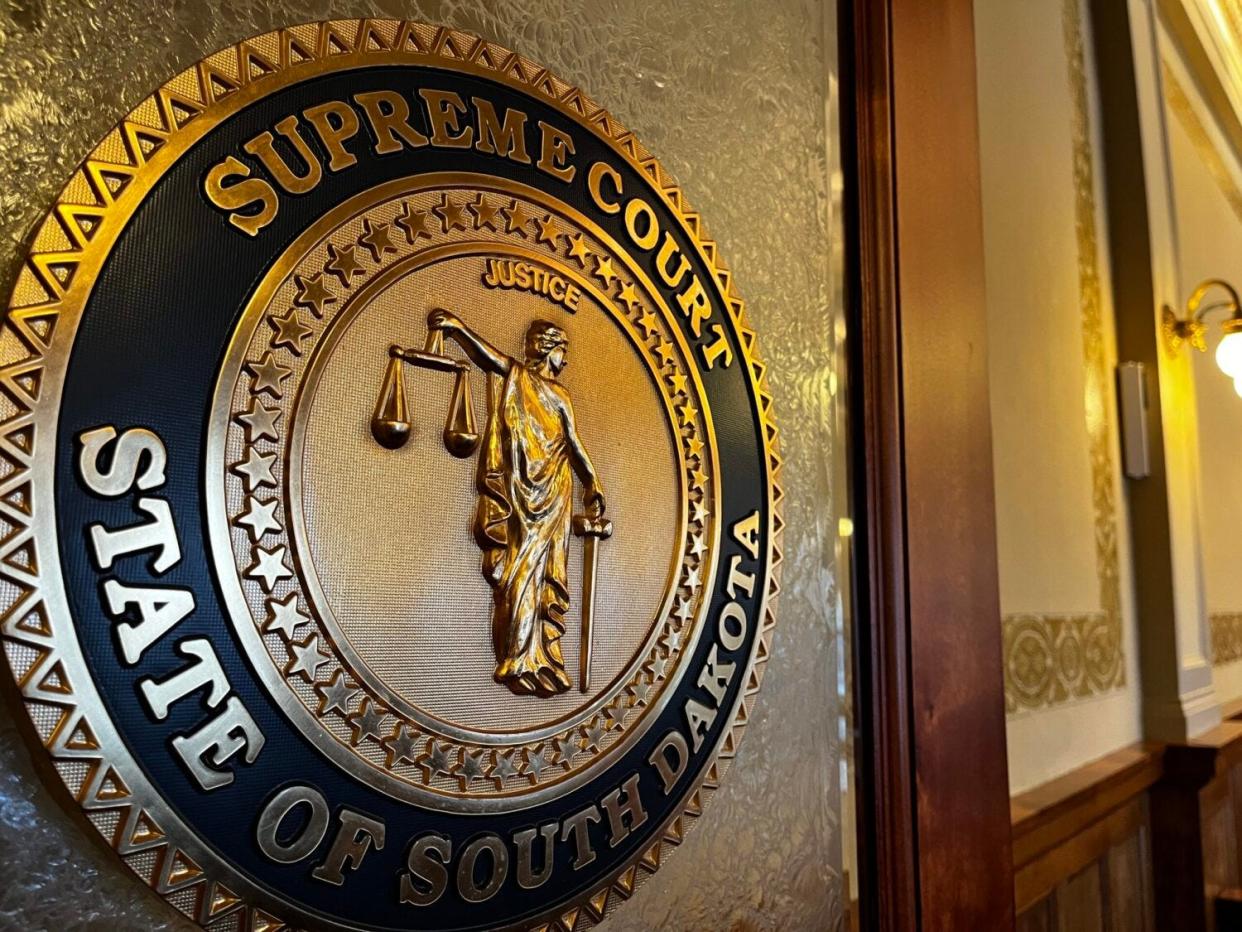Convicted rapist asks South Dakota Supreme Court for a new trial over alleged misconduct

A Spearfish man found guilty of raping an underage girl wants the South Dakota Supreme Court to grant him a new trial over what his lawyer calls police and prosecutorial misconduct.
Scott Rudloff, 45, was convicted of three counts of first-degree rape against an 11-year-old girl and given 30 years on each count. Rudloff maintained his innocence during the trial and at his sentencing.
His appeal to the state Supreme Court turns on questions related to the legality of the means used to convict him – a common area of dispute in child abuse cases built mostly or entirely on the testimony of victims and those who they talk to about the abuse. In 2004, the U.S. Supreme Court ruled that defendants have the right to confront accusers. But the nation’s highest court also ruled in 2015 that teachers can testify about disclosures from a child in some cases, regardless of whether the child testifies.
Defense lawyer: Detective sneaked in evidence
On Wednesday in Pierre, Rudloff’s lawyer, Jason Adams, told the state Supreme Court that an Oregon detective who testified at trial discussed a victim’s forensic interview despite not having conducted it. Adams also said the detective continued collecting information during the interrogation that would later be used against Rudloff, even though he hadn’t been asked explicitly to give up his right to an attorney.
Adams argued that statements gleaned from that interview and emotional testimony from Rudloff’s ex-wife, which Adams said should have stayed out of the trial, were used as a cudgel by prosecutors during closing arguments to get a conviction.
Rudloff was convicted in 2022 for crimes that occurred in Spearfish. The victim disclosed the sexual abuse after the family had moved to Oregon.
There was no physical evidence of Rudloff’s actions, Adams said, so the prosecution’s case turned on the 11-year-old victim’s credibility and the credibility of those nearest to her. Charges involving another victim who’d made rape allegations were dropped, but at trial the detective referenced an interview with her and the words of a doctor who’d found physical trauma “consistent with penetration” at Rudloff’s trial.
Adams argued that prosecutors used the Oregon detective’s trial testimony to improperly bolster witness credibility by sneaking in evidence gathered by someone else, typically known as hearsay, and evidence from an initial interrogation Adams said should’ve ended without a waiver of his client’s right to a lawyer.
Rudloff suggested in that initial interview that DNA evidence would exonerate him, for example. He also mentioned the size of his penis and talked about his pornography habits, telling the detective that his phone history would prove he hadn’t looked at porn with the victim present, and that the victim would sometimes walk around half dressed.
“Those things were hammered on by the prosecutor in closing arguments,” said Adams, who argued the evidence should have been suppressed.
Prosecutor: Defendant tried to ‘control the narrative’
Assistant Attorney General Matthew Templar rejected the notion that prosecutors or the Oregon detective had engaged in anything untoward. He pointed out that testimony from the detective about statements from a medical doctor were later confirmed by that doctor, though he acknowledged that the forensic interviewer who spoke to the victim did not testify.
Templar said prosecutors “went to great lengths” to make sure unfairly damning evidence that might harm Rudloff’s rights was shielded from juror view, noting that portions of a video from the detective’s interview were not shown.
Moreover, he said, Rudloff’s statements about legal counsel during his interview were often followed by more statements, not silence. He didn’t ask for a lawyer, but did mention not wanting to discuss certain topics without one. He also mentioned calling his brother to ask for advice on which lawyer to call.
The topic of DNA was among those first broached by Rudloff during the interview.
Chief Justice Steven Jensen asked Templar about Rudloff’s right to an attorney. Jensen acknowledged that Rudloff kept speaking, but wondered aloud why the detective didn’t follow the legal guidance on how to get a knowing, admissible waiver of the right to an attorney from an interviewee.
“Is it that hard to ask: Do you understand your rights, and do you agree to waive them?” Jensen said. “That question wasn’t even asked.”
In a situation where a defendant asks an officer questions that open the door to incriminating statements, Templar said, it’s unfair to expect law enforcement to see the freely offered words of an interviewee as the words of a person who wants an attorney present.
The detective, he said, was simply being responsive to Rudloff’s questions.
“In theory, the officer controls the interview, but I think this interview video shows that as they were trying to do that, Rudloff was trying to control the narrative,” Templar said. “And he was driving the conversation to areas he wanted to talk about.”
As to whether Rudloff’s ex-wife or the detective back-doored the admission of evidence, Templar said it’s permissible to use hearsay to add context to the statements or work of others. He also mentioned that the defense actively worked to undermine the ex-wife’s credibility with questions tied to the disputed evidence.
In his rebuttal, Adams argued that the detective and prosecutorial team were well aware of the potential trial value of the information gathered in Oregon.
Detectives can’t plead ignorance, he said.
“They know the law, and he was accompanied by two other detectives in his department,” Adams said. “I think it was calculated. He wanted my client to just keep talking, because they knew at some point he’d step into something.”
The justices will take the oral arguments into consideration and issue a written decision at a later date.
This article originally appeared on Sioux Falls Argus Leader: Convicted rapist asks for a new trial over alleged misconduct

